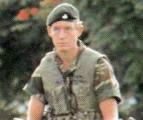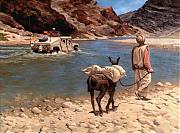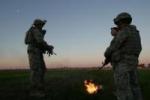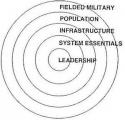McChrystal: More Forces or 'Mission Failure'
by SWJ Editors
Via The Washington Post:
The top U.S. and NATO commander in Afghanistan warns in an urgent, confidential assessment of the war that he needs more forces within the next year and bluntly states that without them, the eight-year conflict “will likely result in failure,” according to a copy of the 66-page document obtained by The Washington Post. Bob Woodward reports; Rajiv Chandrasekaran and Karen DeYoung provide analysis; and a declassified version of document is available on washingtonpost.com.
The Report: Gen. Stanley A. McChrystal says emphatically: “Failure to gain the initiative and reverse insurgent momentum in the near-term (next 12 months) — while Afghan security capacity matures — risks an outcome where defeating the insurgency is no longer possible.” … McChrystal describes an Afghan government riddled with corruption and an international force undermined by tactics that alienate civilians. He provides extensive new details about the Taliban insurgency, which he calls a muscular and sophisticated enemy that uses modern propaganda and systematically reaches into Afghanistan’s prisons to recruit members and even plan operations.
Bob Woodward’s full story can be found here.
Analysis: McChrystal’s assessment, in the view of two senior administration officials, is just “one input” in the White House’s decision-making process. … When Obama announced his strategy in March, there were few specifics fleshing out his broad goals, and the military was left to interpret how to implement them. As they struggle over how to adjust to changing reality on the ground, some in the administration have begun to fault McChrystal for taking the policy beyond where Obama intended, with no easy exit. But Obama’s deliberative pace — he has held only one meeting of his top national security advisers to discuss McChrystal’s report so far — is a source of growing consternation within the military. “Either accept the assessment or correct it, or let’s have a discussion,” one Pentagon official said. “Will you read it and tell us what you think?” Within the military, this official said, “there is a frustration. A significant frustration. A serious frustration.”
The full piece by Rajiv Chandrasekaran and Karen DeYoung can be found here.
The Department of Defense on Sunday evening released a declassified version of Gen. Stanley A. McChrystal's assessment of the war in Afghanistan. The Post agreed to publish this version, which includes minor deletions of material that officials said could compromise future operations, rather than a copy of the document marked "confidential." The document can be viewed here.





 I go by the Army War College definition that strategy consists of an ends, ways, and means construct based on the nature of the threat. It does not, as most so-called strategists think, consist only of ends and ways. It always requires a realtionship between ends and means. So, unless our President is waiting for the Afghan (and US) political situation to shake out - as one article last week said - and is using his current phrasing to buy time, then he simply doesn't understand strategy as I do and as is taught in the war colleges and staff colleges.
I go by the Army War College definition that strategy consists of an ends, ways, and means construct based on the nature of the threat. It does not, as most so-called strategists think, consist only of ends and ways. It always requires a realtionship between ends and means. So, unless our President is waiting for the Afghan (and US) political situation to shake out - as one article last week said - and is using his current phrasing to buy time, then he simply doesn't understand strategy as I do and as is taught in the war colleges and staff colleges.



 . We do allow the Military to cheat and plan some stuff but other than that.....we just wait for that Invisible Hand to swoop down and guide us to.........where ever.
. We do allow the Military to cheat and plan some stuff but other than that.....we just wait for that Invisible Hand to swoop down and guide us to.........where ever.




Bookmarks